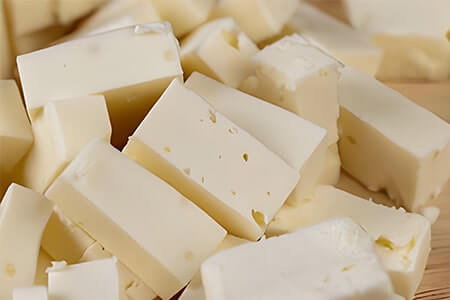You May Already Have Some at Home
It is not without reason that athletes are so concerned with eating enough proteins. Proteins are the building blocks of our body and play a crucial role when it comes to our health. Nowadays you can find countless protein foods in the supermarket, but it is also smart to look at natural alternatives. These not only meet your protein needs but also contribute to a healthy and balanced diet.
Proteins Are Important!
The daily protein requirement depends on factors such as body weight and how much exercise you do. For those with low to moderate activity levels, about 0.83 grams of protein per kilogram of body weight daily is usually sufficient. For the sporty among us, the recommended daily intake varies between 1.5 (up to a maximum of 2) grams of protein per kilogram of body weight.
Certain groups of people, such as vegetarians, vegans, children, and pregnant women, generally have an increased protein requirement. On the other hand, according to the Nutrition Center, most people tend to eat more proteins than necessary. If you have any doubts about your protein intake, visit your doctor.
We all know that products such as chicken, turkey, salmon, cheese, milk, and eggs are known for their high protein content. But there are even more natural products that are full of it.
Also Read – 17 Small, Medium, or Large White Dogs Breeds
1. Soft Cheese

Cottage cheese owes its reputation to the impressive protein content this product contains. On average, cottage cheese contains approximately 10 to 15 grams of protein per 100 grams. This makes cottage cheese generally a great favorite among athletes, for example, who want to increase their daily protein intake. What makes cottage cheese extra attractive is the fact that it generally has a low-fat content and also contains important nutrients, such as calcium.
2. Tofu

For those who choose a vegetarian or vegan diet, or simply want to consume less meat, tofu provides an excellent source of protein with approximately 8 grams of protein per 100 grams. This nutritious meat substitute, made from soybeans, is a tasty addition to various dishes, provided it is prepared correctly. For example, try this recipe for spicy tofu balls.
3. Almonds

A handful of almonds weighing about 28 grams contains about 6 grams of protein. In addition to protein, almonds also contain healthy fats, fiber, vitamin E, and a lot of minerals including magnesium and calcium. These nuts therefore not only serve as a nutritious snack but are also super good for you! Almonds are an excellent source of protein, especially for vegans.
4. Quinoa

If you’re looking for other plant-based sources of protein, consider preparing a quinoa dish more often. This superfood is packed with protein and also offers a wide range of health benefits. But what makes quinoa truly exceptional is that this product contains all nine essential amino acids. This is a rare property among plant sources. In addition, quinoa is a rich source of fiber, vitamins, and minerals such as iron, magnesium, and B vitamins. Not only is it gluten-free, but it also fits into different dietary patterns, from vegan to vegetarian and everything in between.
5. Lentils

Lentils have the greatest protein content of any bean. One hundred grams of cooked lentils contain around nine grams of protein. This multipurpose food is high in fiber and a great source of protein. There are many different ways to prepare lentils, such as salads, stews, and soups. Lentils are a convenient way to get extra proteins into your diet.


